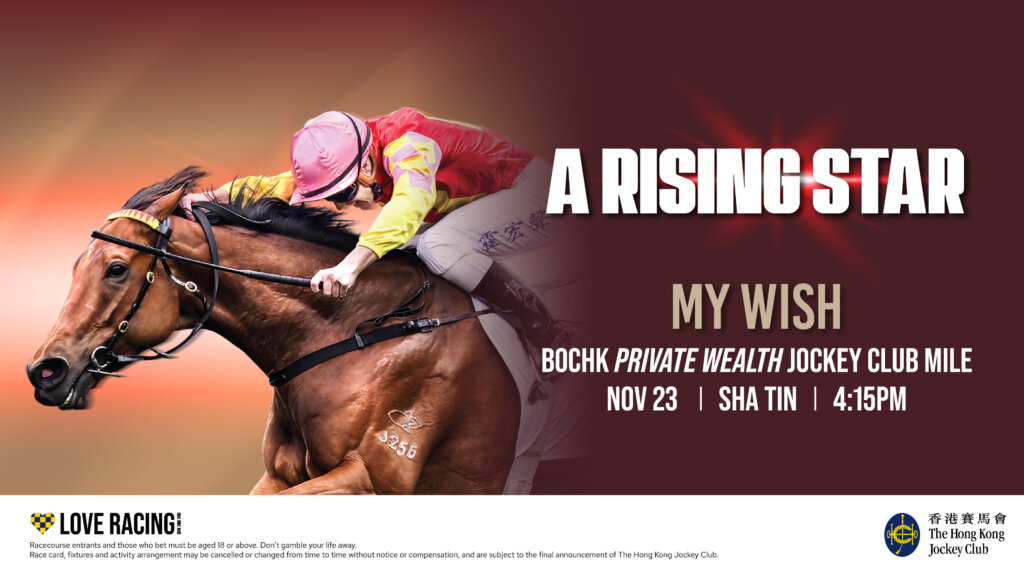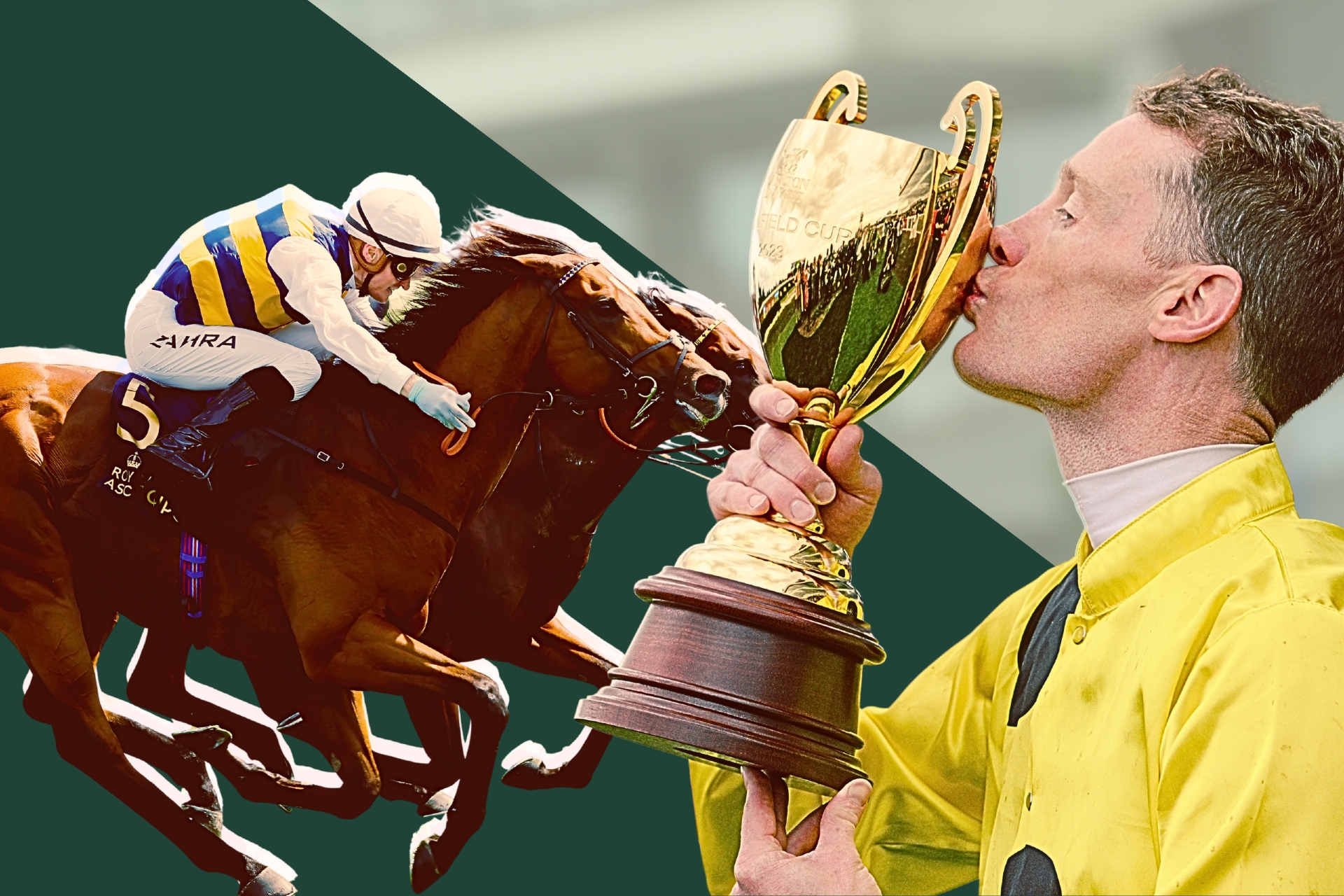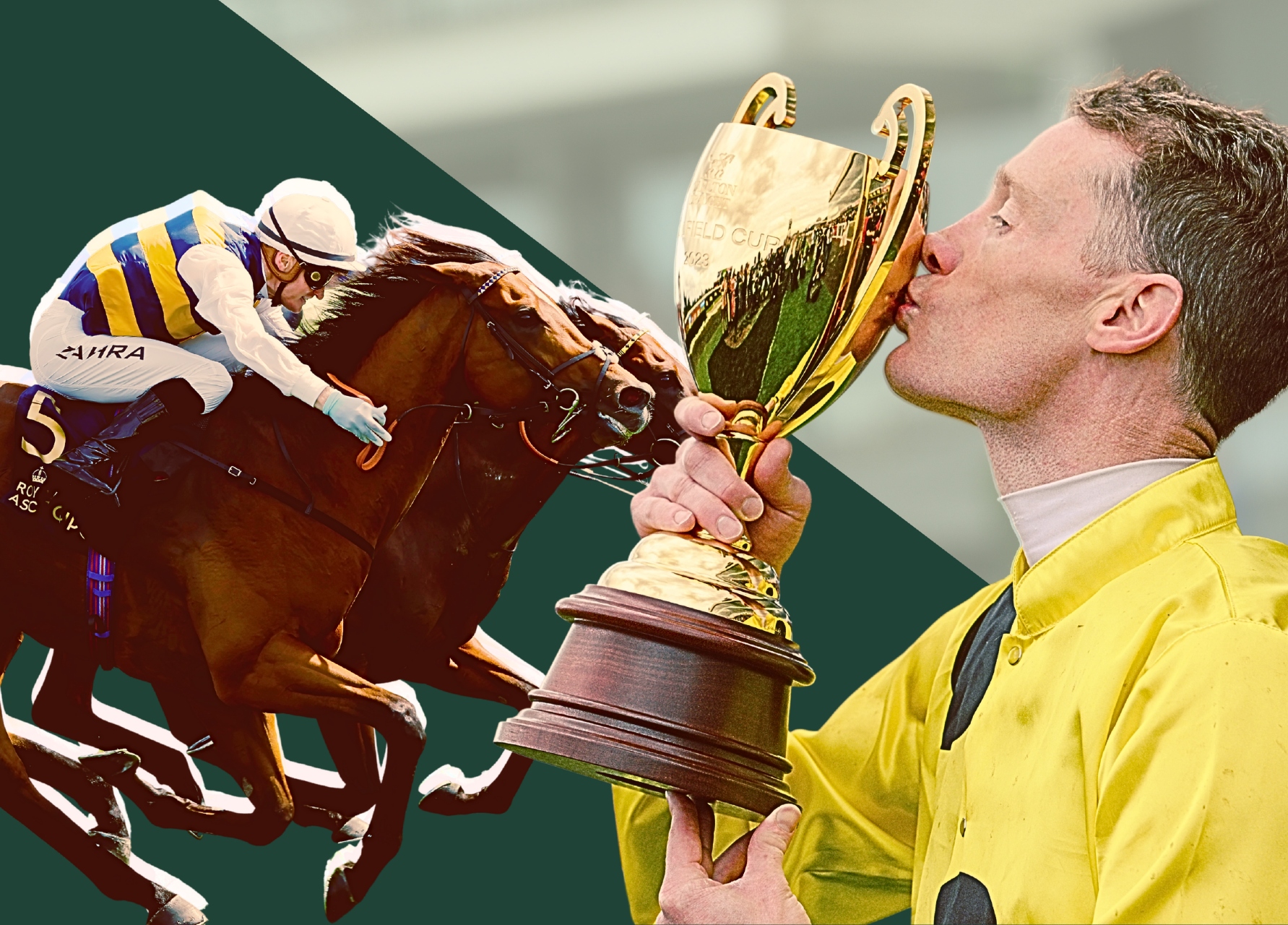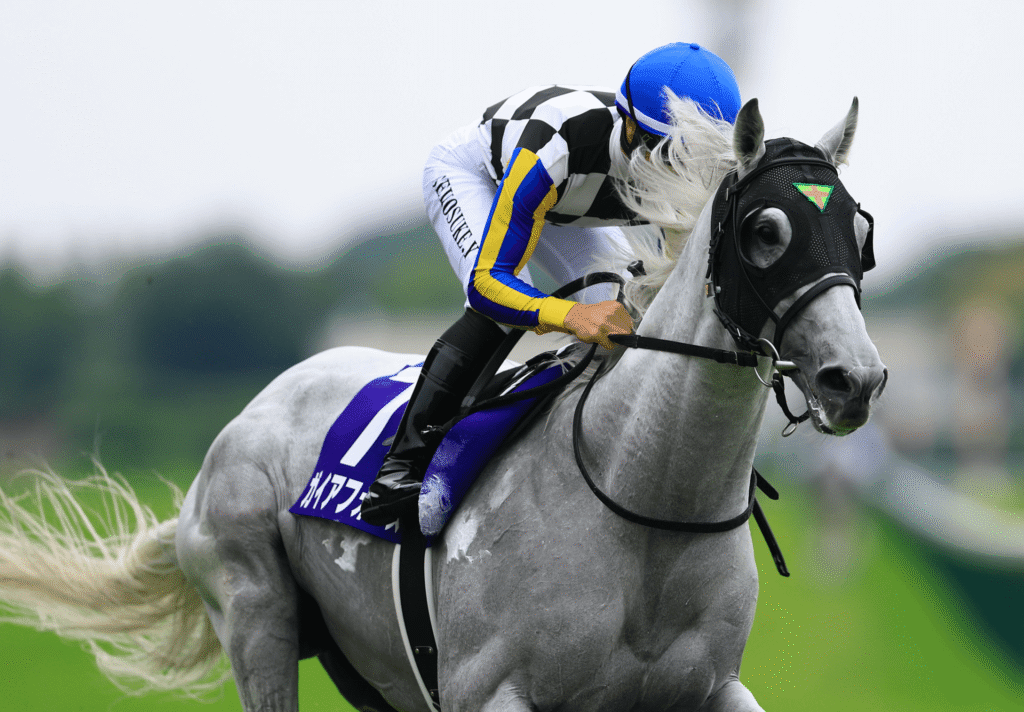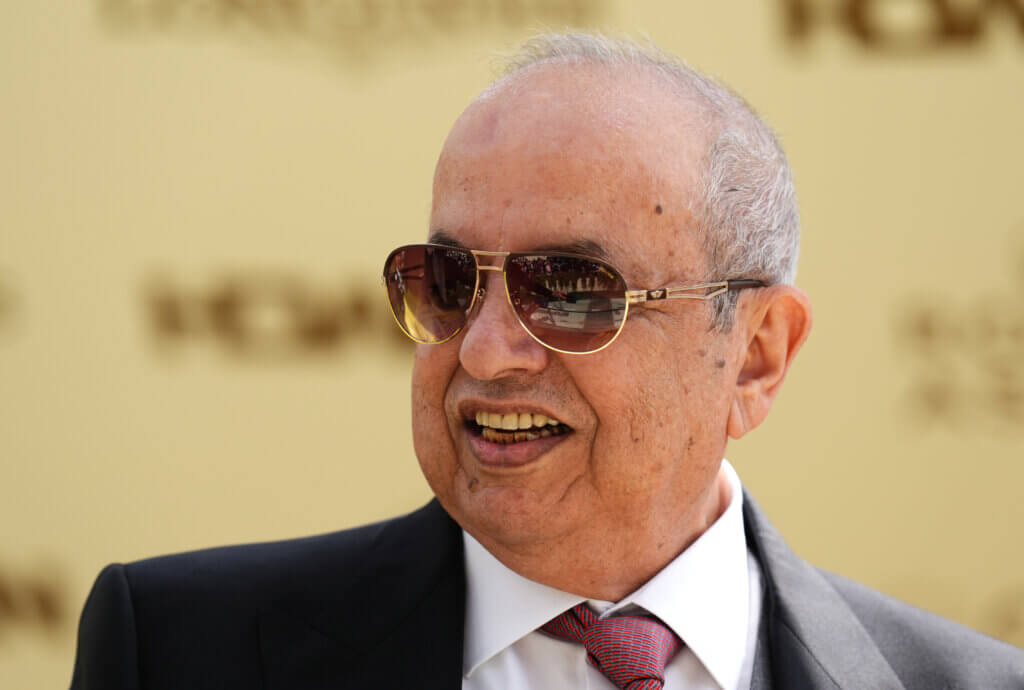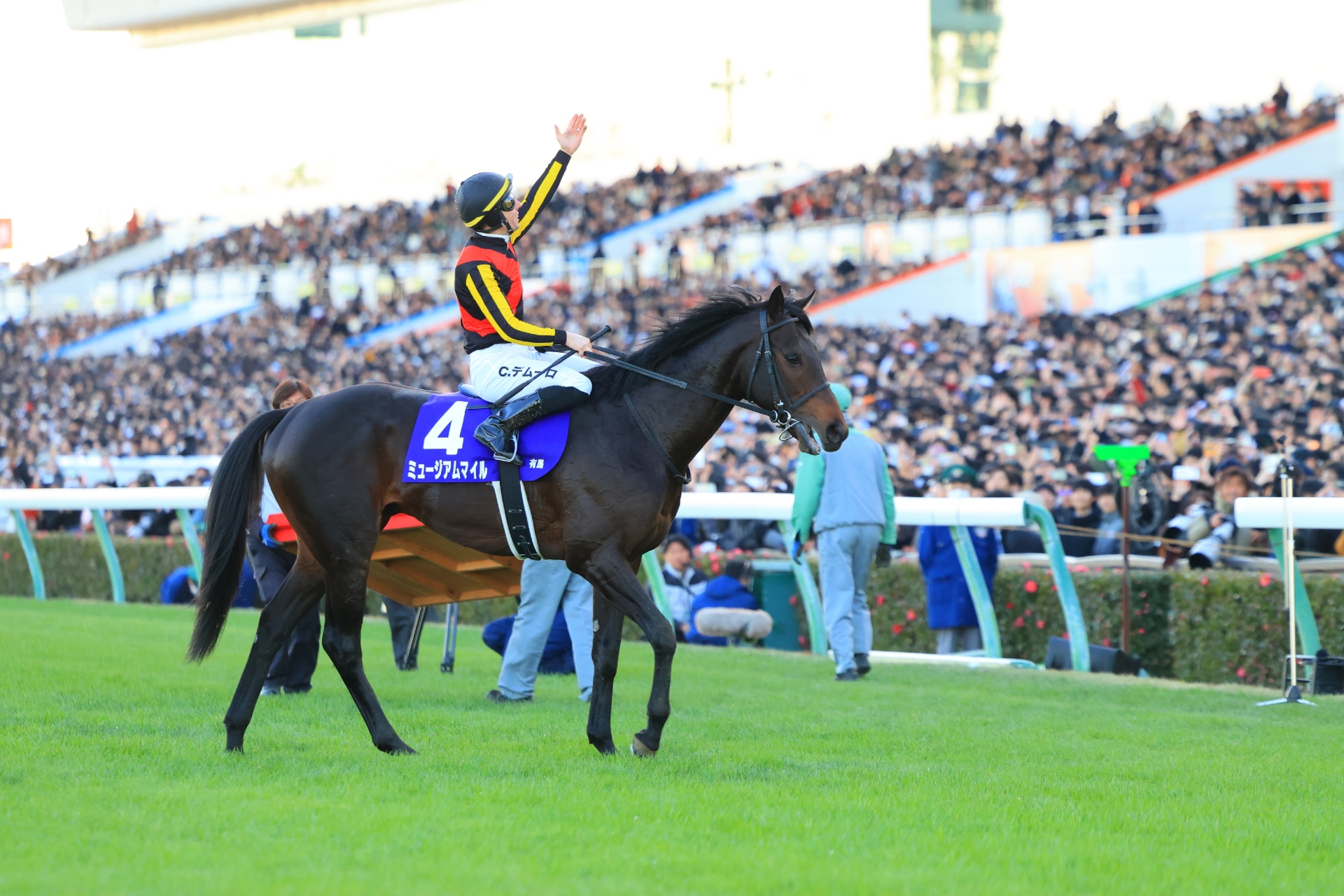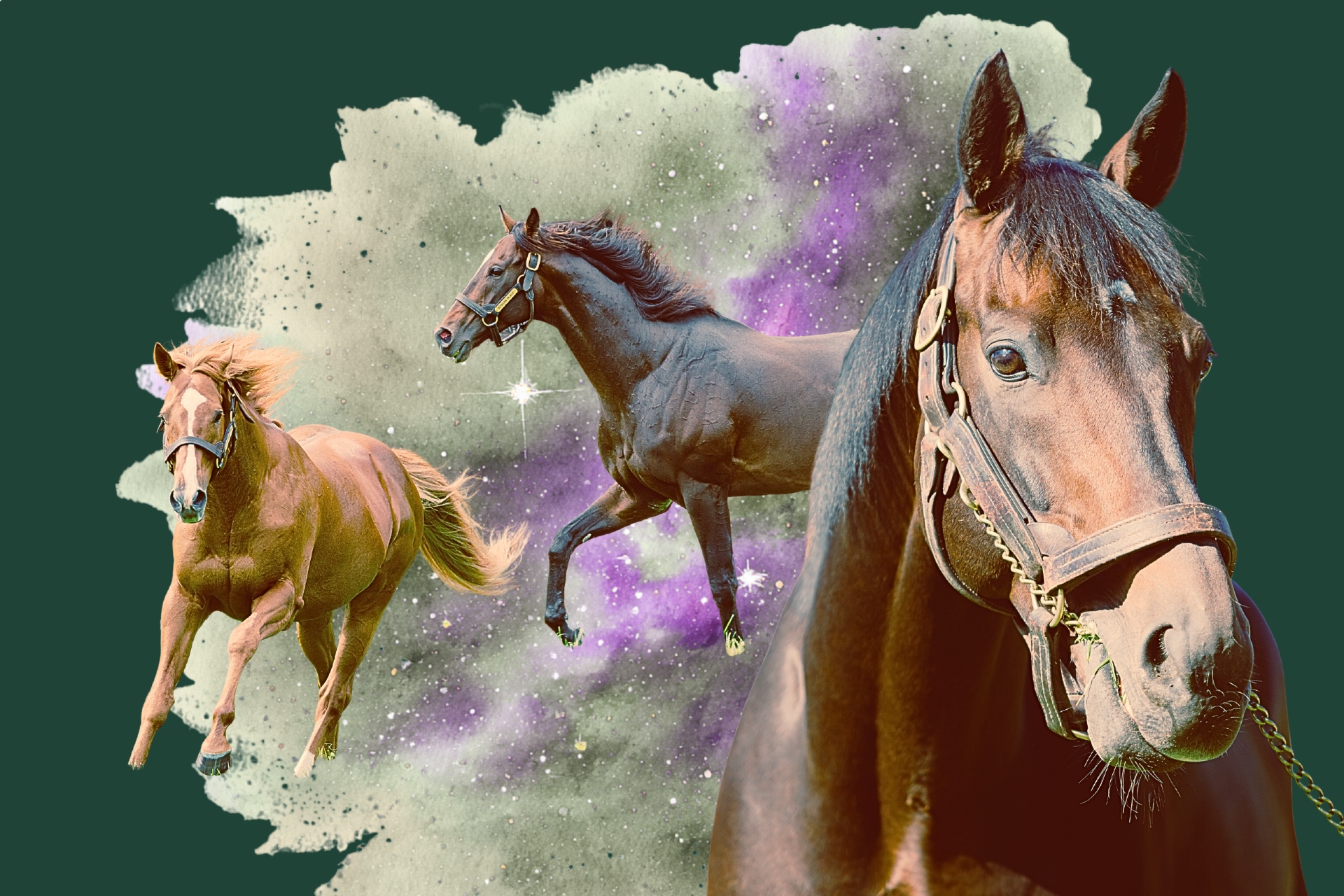No Off Season, No Apologies: How Mark Zahra Rewrote The Jockey Playbook
Ibiza summers, Super Bowls, Melbourne Cups: Australian racing’s Group 1 assassin keeps riding to his own beat.
THERE ARE certain conventions for any jockey when you win a Group 1 race in Australia.
Usually, you’re interviewed on horseback after your mount has finally pulled up, then you’ll sometimes be interviewed again when your feet touch the ground back at scale, weigh in correctly to satisfy stewards and punters, and smile happily when the official presentation happens. James McDonald, Jamie Melham, Damian Lane, they all know the drill.
But convention has never really been Mark Zahra’s strong suit, and after winning the C. F. Orr Stakes at the elite level in 2022, he sprinted back to the jockeys’ room faster than his mount, Tofane, hit the line. He said he didn’t have time for a one-minute interview, celebratory hugs with connections, or anything else for that matter as he had a car with its engine already warm, waiting to take him on the most ambitious work/travel changeover we’ve seen for a while: to make it in time for kick-off in the Super Bowl on the other side of the world where fellow jockey Jamie Spencer and Sheikh Fahad al-Thani were waiting for him.
Zahra just managed to make a flight from Melbourne to Sydney, scrambled through immigration for an overnight trip to Los Angeles, and by the time he arrived in the United States, looked at his watch and realised what he’d just done.
“There’s only one flight out of a night time (from Australia) to get to America and I had to be (in Sydney) by 7.30pm,” Zahra laughs. “I landed in LA at 6.30pm on a Saturday night and there were people drinking and having a good time and the Super Bowl was the next day.
“It was almost like you go back in time. I just love the NFL. It’s so huge.”
Once photos started spilling into social media of Zahra at Super Bowl LVII, won by the Kansas City Chiefs against the Philadelphia Eagles in one of the most memorable championship games in NFL history, Australian punters asked: how did he make it there in time given he was riding in Melbourne on the weekend?
But Zahra has never been one to surrender to norms, challenging not only the human limitations of travel, but the tradition wedded to his profession from decades ago.
“He’s got the best work-life balance of any jockey in Australia,” one trainer says.
In Australia, a jockey could ride in a race on any of 364 days of a year. The only one which remains sacrosanct is Christmas Day, with several states now hosting meetings on the Christian holiday of Good Friday. The gambling beast in Australia always has another horse race ready to feed it every few minutes, and so jockeys ride.
As a lover of many sports, Zahra – who will make just his second trip to Japan to ride Docklands in the G1 Mile Championship at Kyoto – has thought jockeys should be more in line with footballers, baseballers and basketballers: peak for certain periods of the year and take time off, even if his own sport doesn’t mandate it.
“In Australian racing, there’s no off season,” Zahra tells Idol Horse. “Every other sport in the world has a season, and most other countries have one where you can aim to be successful and be up and about for a certain period of time. Then you look forward to a break. We don’t have that here.
“I struggle with my weight so I spend a lot of time in the sauna, fasting, abstaining from a lot of things. When I was younger, I couldn’t do it. There are demands you need to meet. But as I got more successful, I found I needed to have a break. I love travelling and good food. I just decided I was going to make my own season.”
It would be an uncomfortable conversation for many jockeys to have with top trainers and loyal owners, but as one of the most successful big-race hunters in Australia, Zahra makes his own rules.
He will usually have a break during the Melbourne winter, which he laments has “horrific” weather, and fly to Europe and the Spanish party island of Ibiza for a month. In December, he generally doesn’t ride and spends his days in Australia along the coastline of Byron Bay in NSW. Zahra and his wife Elyse – who he met on a boys’ trip to Mexico when she was staying at a resort his friends were partying at – were advised they would have to slow down their travel when daughter Harper, 4, was born.
“We haven’t slowed down at all,” Zahra says. “We just take her with us. It’s given me a level of responsibility, but I’ve just found an extra person in my life who I can enjoy spending time with.
“I don’t enjoy riding all the time. This is the way that suits me. It’s good for your longevity as well. I’m 43 and if I continued riding all the time, starving and wasting, there’s no way I would have made it to where I am now.”
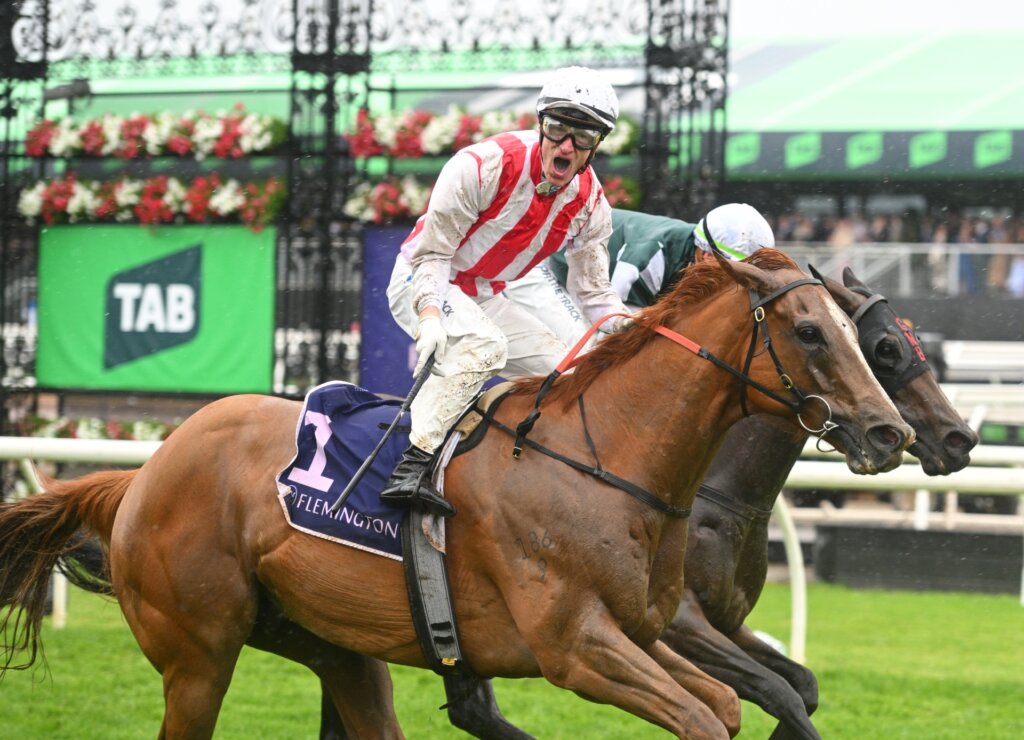
To traditionalists, the Melbourne Cup carnival is the most prestigious week of horse racing in Australia, a four-day feast where every trainer and jockey wants to cash in on a year, maybe a lifetime, of work.
This year, Zahra rode four consecutive winners on Victoria Derby Day, including G1 triumphs on Godolphin-owned three-year-olds Tentyris (Coolmore Stud Stakes) and Observer (Derby).
After piloting Leica Lucy into second in the G1 Empire Rose Stakes behind the tearaway Pride Of Jenni, Zahra walked up to the media microphone for the ‘post-race comments’ interview as he returned to scale and quipped: “I’d forgotten what it’s like to lose”. He was only half joking. Zahra finished the Cup carnival with a remarkable eight winners, ending McDonald’s dominance at Flemington.
Zahra didn’t start the spring with goals to ride a certain number of winners, to win a particular race, or to usurp McDonald, who is now riding on a short-term licence in Hong Kong. He just wanted to be in the picture for as many of the big feature races as he could – and enjoy himself at the end of the carnival (he was seen enjoying DJ Fisher’s set in the wet after Stakes Day at the final meeting of the Flemington extravaganza).
“I don’t care about what any other jockey is doing,” Zahra says. “I enjoy my time when I’m riding, I enjoy my holidays and I don’t care what any other jockey is doing in Australia. This is the time I want to have a good period. My goal is pretty much to have a great time in Europe once the season is over.”
But what makes Zahra so good?
As a kid who had no racing pedigree in his family apart from a grandfather who would take he and his brothers to the races when they were children, Zahra’s entry into the world of a jockey was upside down. By 15, he found himself studying races, learning about idiosyncrasies of individual horses, speed maps and track patterns. That all came naturally.
Riding horses didn’t.
“I had the smarts, but I didn’t know how to ride a horse,” Zahra says. “I actually wanted to leave high school at the end of Year 9, but my parents wouldn’t let me. At the end of Year 10, I left. In Western Australia, you went through a 10-week course learning how to ride.
“I didn’t have bad hand-eye co-ordination, but I didn’t really know what was going on. I feel like that’s why I was a late bloomer as a jockey because I didn’t have any idea about horses. I had no idea for a long time. I slowly got the hang of it, but it took me a while.
“In my younger years, I would have wanted to give up 100 times. But I just got better at it.”
As a jockey, it’s never good when you fall. Zahra would fall, often. But there was something inside of him determined to make his apprenticeship work, and so he kept at it. He’d always had a feel for a race, but then he started getting a feel for riding a horse. Finally, he was becoming a jockey.
His most prominent overseas mission was on the grand Perth sprinter Scenic Blast, who he rode in Japan back in 2009. He later made the full-time switch to the more lucrative Melbourne circuit, and hasn’t looked back.
“It doesn’t matter if it’s at home here in Melbourne, or around Australia or going overseas to win big races, he’s very adaptable,” rival rider Craig Williams says. “He’s got a great style, he’s very strong and such a smooth rider. He’s so effective. It’s his balance and hands, the way he manoeuvres a horse throughout a race, it’s just smooth. If you wanted to model a riding style on someone, then Mark Zahra would be one. He’s very uncomplicated.”
Says Zahra: “I’ve got a great ability to handle pressure. I’ve always handled that quite well. Having poise and patience in a race is very important. You’ve got to have balance, you’ve got to have decent hands and you have to make good decisions in a race quickly. I think that’s what makes a good jockey, and I’m lucky enough I reckon I can tick most of those boxes.”
For any Australian jockey to win the Melbourne Cup, it can be a life-changing moment. Zahra is in rare air as the only jockey this century to win the race in successive years on different horses, steering Gold Trip (2022) and Without A Fight (2023) to victory in Australia’s great race.
It also showed his ruthless streak after being offered the ride on Gold Trip for his Cup defence, but electing to switch to Without A Fight, who he rode in a Caulfield Cup win a fortnight earlier. Zahra didn’t have to make a quick decision this time, but it was an agonising one.
The replay of Without A Fight’s Melbourne Cup triumph was everything Williams speaks about.
As the field cornered into the long Flemington straight, Zahra was angling for a run on the marauding Without A Fight, who had plenty in the locker. He spied a narrow passage to the inside of Gold Trip, and knowing the entire tended to shy from horses who cramped him on his near side, Zahra quickly improved into his old mate’s shadow. On cue, Gold Trip baulked slightly to his outside, leaving a gap clear enough for Without A Fight to bound through and race to victory in the two-mile classic. It was exactly how he had planned it with friend and respected form analyst Mark Hunter when they were mulling which horse to ride.
“If I just went with my heart, I would have gone with Gold Trip because I loved him,” Zahra says. “But when I had to take the emotion out of it and think, ‘who’s the best horse to win this race?’ It was Without A Fight.”
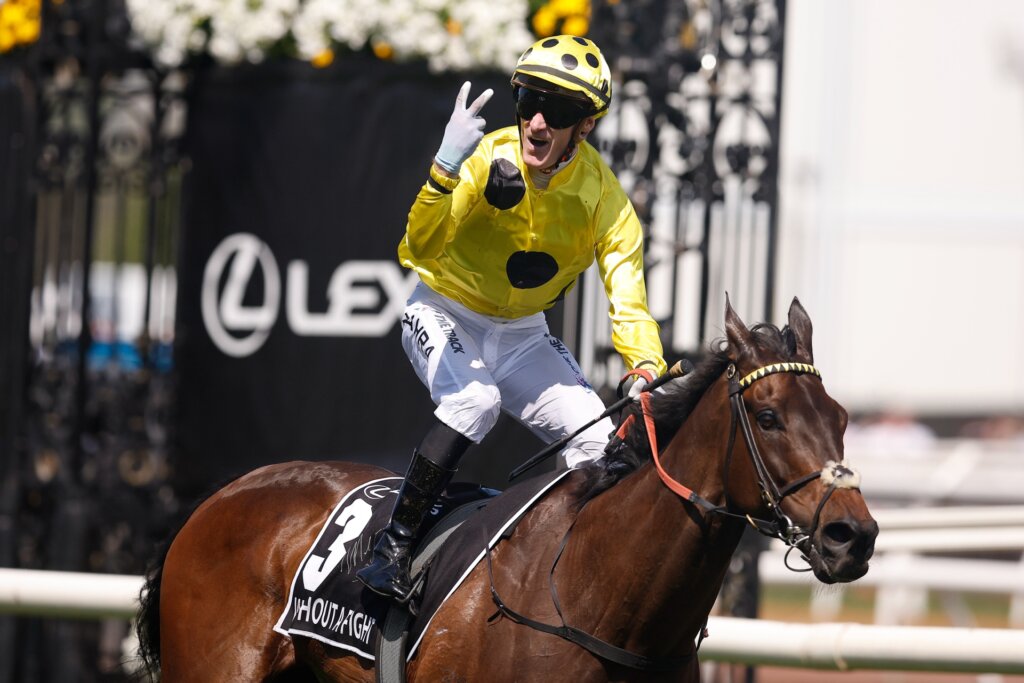
Zahra’s return to Japan has been 16 years in the making, but the country’s fanatical racing fans will now see a ruthless jockey hunting big races at the peak of his powers, rather than a late-20s one still figuring out his place in the world.
He will partner Royal Ascot victor Docklands, who he freely admits was a ride he picked up on the way to Ibiza earlier this year. He won the Queen Anne Stakes and then went straight to the airport to settle in for one of the long European summers he covets with DJ sets for days.
Trainer Harry Eustace has set an ambitious plan to travel Docklands to Japan, and will take Zahra along for the ride.
“Damian Lane is a good friend of mine and enjoys a lot of good things in life that I do, good restaurants, a good lifestyle, and he loves Japan,” Zahra says.
“The Japanese are great people who know how to do things, and they do it right. I love sashimi and sushi, they’re the masters of that. Their racing looks awesome. I’m spewing I can only spend five or six days there, I wish it was a month.”
And if he does manage to win the Mile Championship, don’t expect Zahra to be rushing past the television cameras this time and dodging the obligatory interview. He might need a little help with translation, but there’s no plane to catch to the Super Bowl this time.
And who knows, Japan might even turn into a regular holiday destination for the jockey determined to keep writing his own rules. ∎
